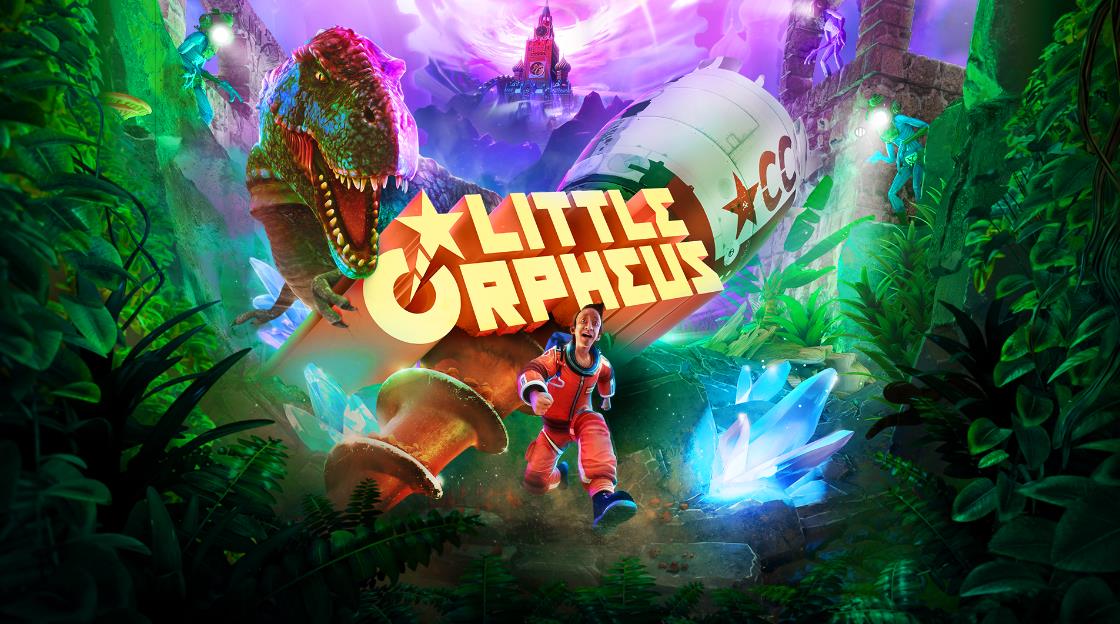
Little Orpheus is a cinematic platformer that had a lot of potential and a stellar idea, but never lives up to the promises it sets up. This is a real shame; most of the artistry put into the game has a lot of care put into it and even the low-spec Nintendo Switch manages to deliver some impressive visuals.
The premise revolves around Ivan Ivanovitch, a Russian cosmonaut who is being interrogated by his superior officer after a botched mission. A weapon known as “Little Orpheus” was lost and Ivan is trying his best to spin some elaborate and totally unbelievable story to explain what happened.
He doesn’t buy Ivan’s story from the start and humors him; letting Ivan dig himself deeper into a more elaborate lie to explain what happened. This was where the game had a lot of promise since Ivan’s story could be literally anything and the gameplay could support his absurd lies. Sadly, Little Orpheus does not even try. Where does it all go wrong? Find out in this Little Orpheus review!
Little Orpheus
Developer: The Chinese Room
Publisher: Secret Mode
Platforms: Microsoft Windows, PlayStation 4, PlayStation 5, Nintendo Switch (reviewed), Xbox One, Xbox Series X|S, iOS
Release Date: September 13, 2022
Players: 1
Price: $12.99
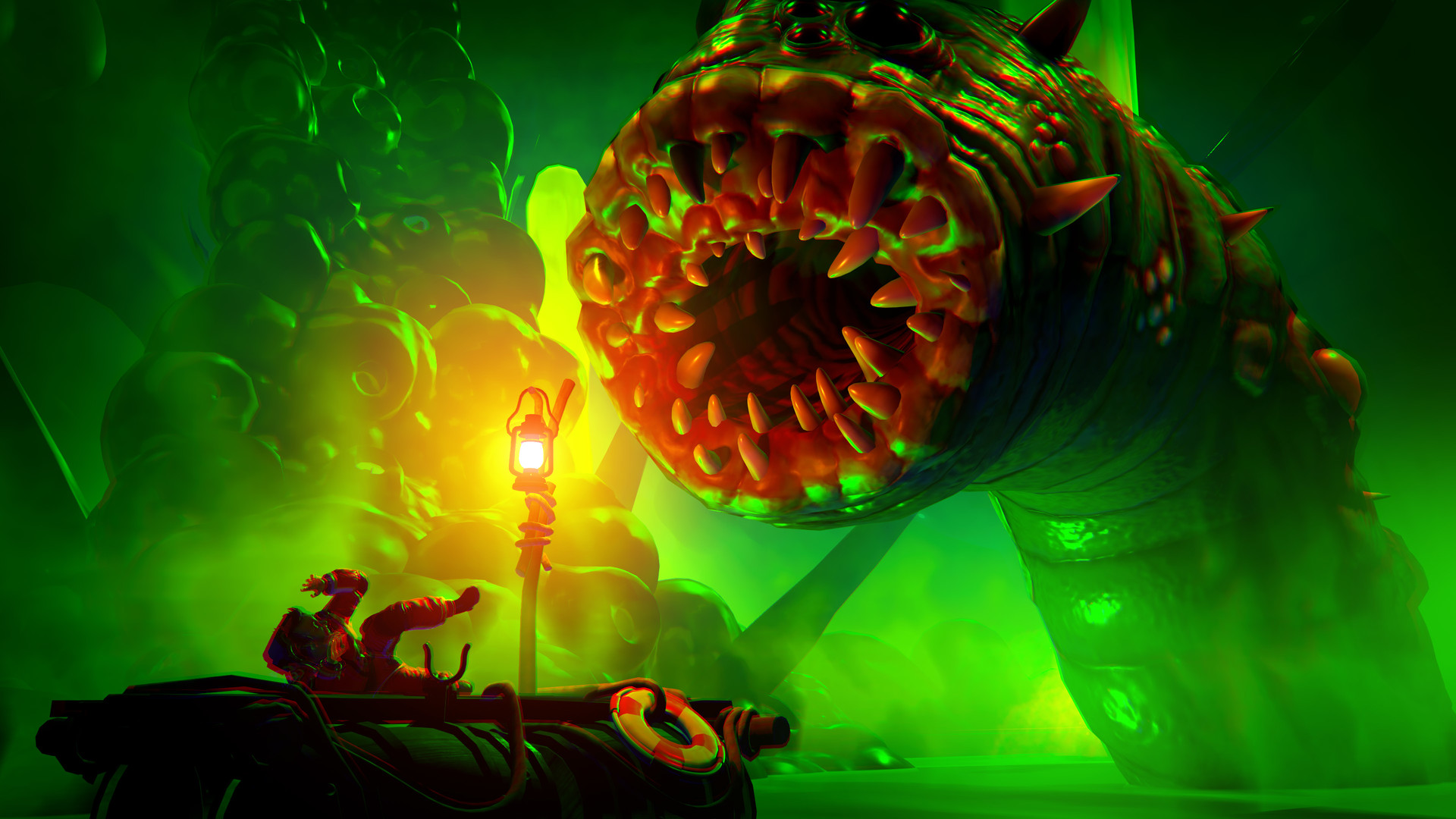
Little Orpheus‘ premise was one where literally anything could happen to support fun and exciting gameplay. In other examples of the genre like INSIDE or The Missing: J.J. Macfield and the Island of Memories; players are expected to do some light platforming on top of solving some esoteric puzzles or engage in some stage gimmick or set-piece.
These are not twitch-based platformers. Theses kinds of games usually have methodically paced movement and drawn-out animation to make the characters feel weighty and have a sense of verisimilitude. Gamers would often have to take their time when moving through stages because death was easy and there were traps and obstacles to negotiate.
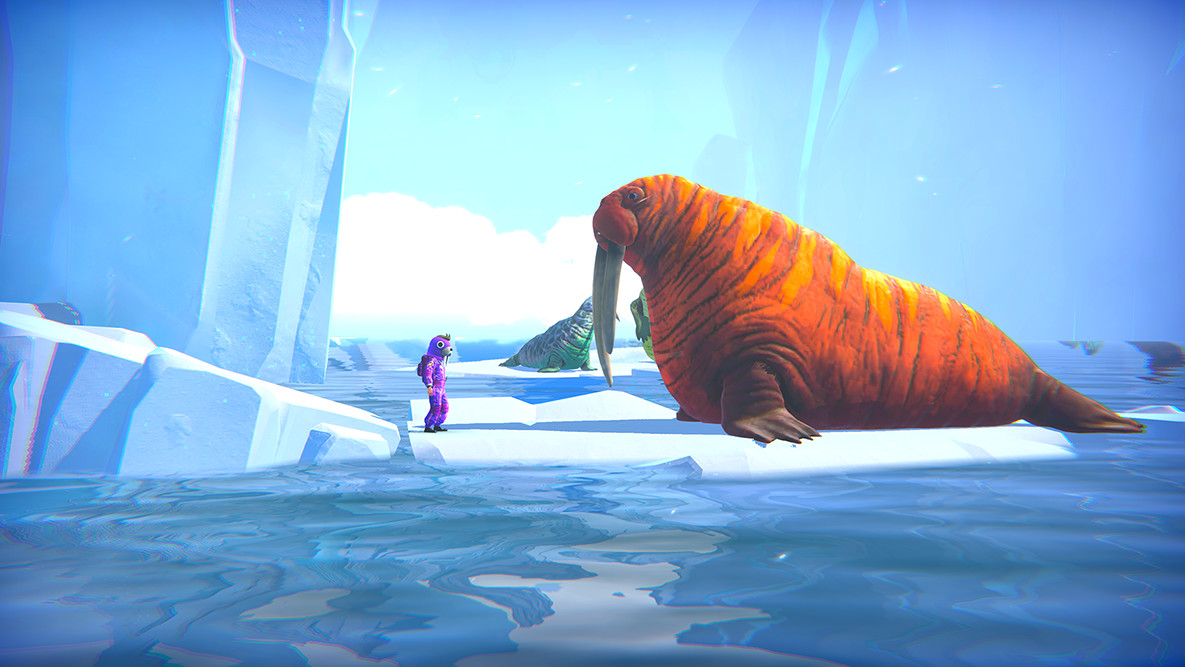
Little Orpheus barely has anything in it to contend with other than some tension in your left thumb from holding the left thumb-stick to the right. Typically, cinematic platformers will have very simple controls: jumping, crouching/sliding and a context-sensitive action button. The idea is that the scenario will have various actions and gimmicks to mix up the gameplay. This is not the case with Little Orpheus.
There is so little substance and boring level design that Little Orpheus can barely qualify as a cinematic platformer. Most stages are long and flat corridors and may have one gap to clear or the most brain dead puzzle imaginable that only involves pulling a switch. There is also a laughably simple stealth module that is so pathetic that its inclusion is questionable since there are no actual enemies.
Other times Little Orpheus has Ivan running away from collapsing floors or maybe he’s being chased by some large creature. Probably the most daring the game gets is during the underwater sequence where the game’s gravity is modified and players get a slightly more challenging set of obstacles. Ivan’s story could have been anything, but instead the game is dull and often boring.
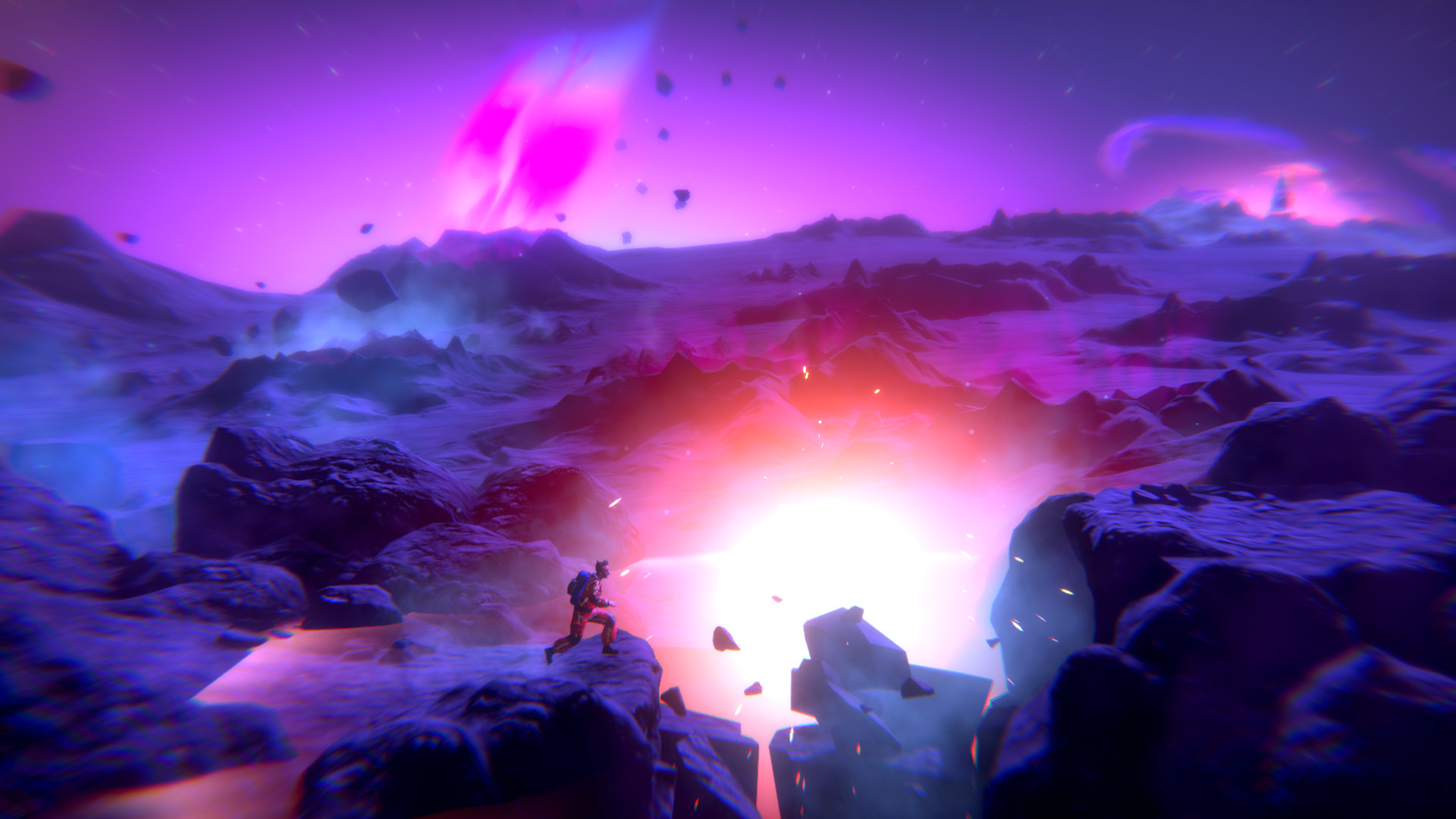
While trekking through these surreal hollow-Earth backdrops, Ivan narrates his story to his superior who is not having any of it. After a while I was relating more to the increasingly more grouchy and frustrated General than with the protagonist. You’ll wish Ivan would tell a better, more exciting lie that would make the gameplay less of a flat-line.
Ivan and the General give solid comedic performances and are given decent scripts to work with. Both characters play off each other very well and many of the jokes land. It is too bad that the gameplay is so utterly lacking of any imagination, because Little Orpheus is a worthy artistic achievement with its art direction.
Little Orpheus ends up feeling incredibly shallow and the recycling of some set-pieces makes the experience seem a lot cheaper than the stunning imagery would suggest. Ivan may not come up with compelling scenarios, but the guy does have an eye for lurid and surreal landscapes. Even on a meek Nintendo Switch, the colorful settings leave an impression.
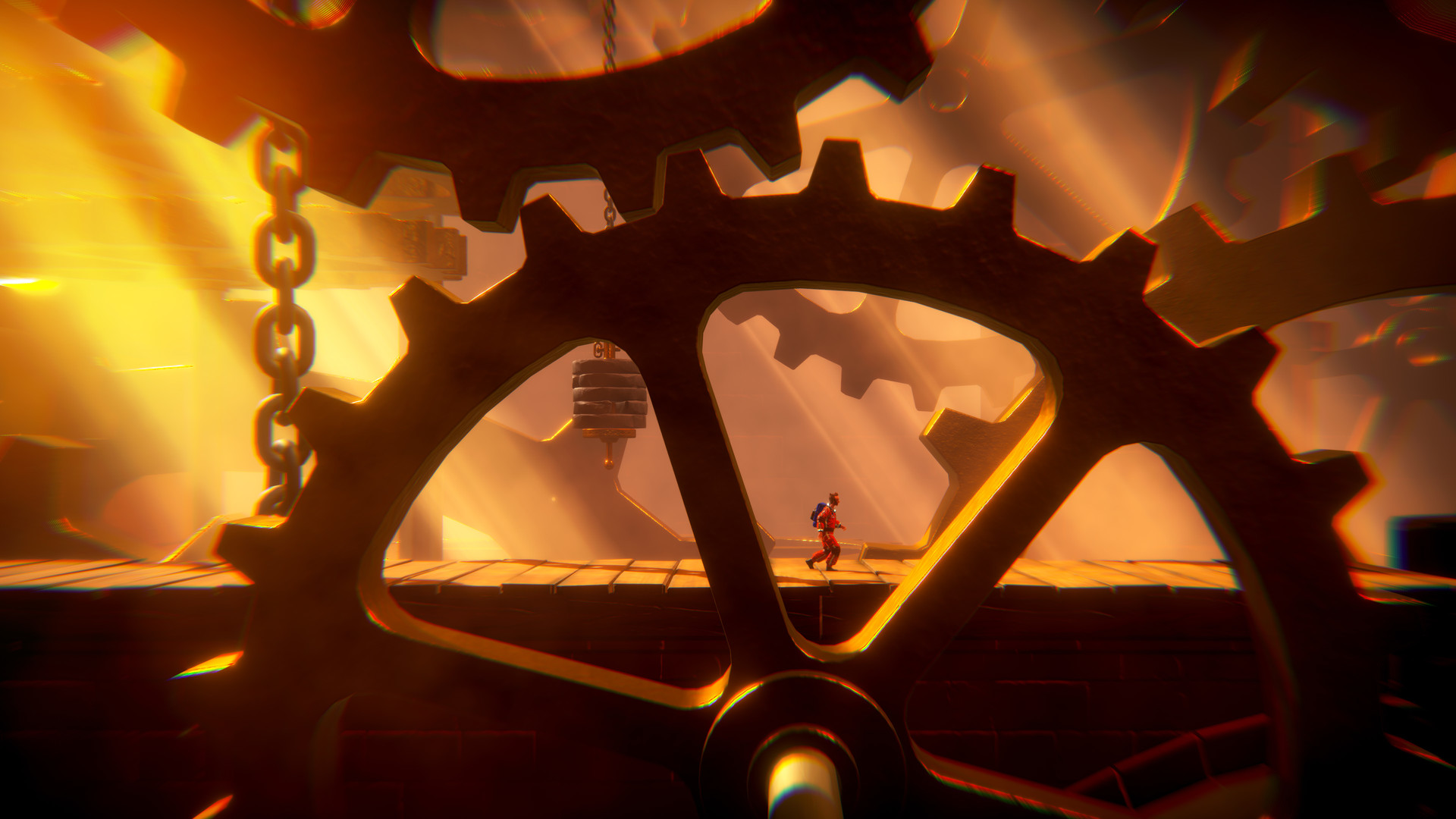
The heavy use of chromatic aberration and intense pallet make Little Orpheus feel like a feverish acid nightmare while watching some old-timey serials. This was originally an Apple Arcade release and had an episodic release format. This means all levels end with a cliffhanger (which doesn’t make sense when Ivan is narrating) and a second narrator who is more like an announcer closes each episode.
While Little Orpheus lacks in level design, it makes up for it with spectacle. There are scenes with massive alien structures in the distance, enormous carnivorous dinosaurs and imposing technological wonders. The artist(s) went nuts realizing beautiful vistas and environments.
Character design is also appealing- seemingly inspired by the bande dessinée by Hergé, The Adventures of Tintin. Ivan’s silhouette even has some Tintin-like qualities, like his coif and frantic key-poses during action; a staple of Hergé’s art. Ivan is still a very different character- a clumsier and oafish character and he is distinct for it.
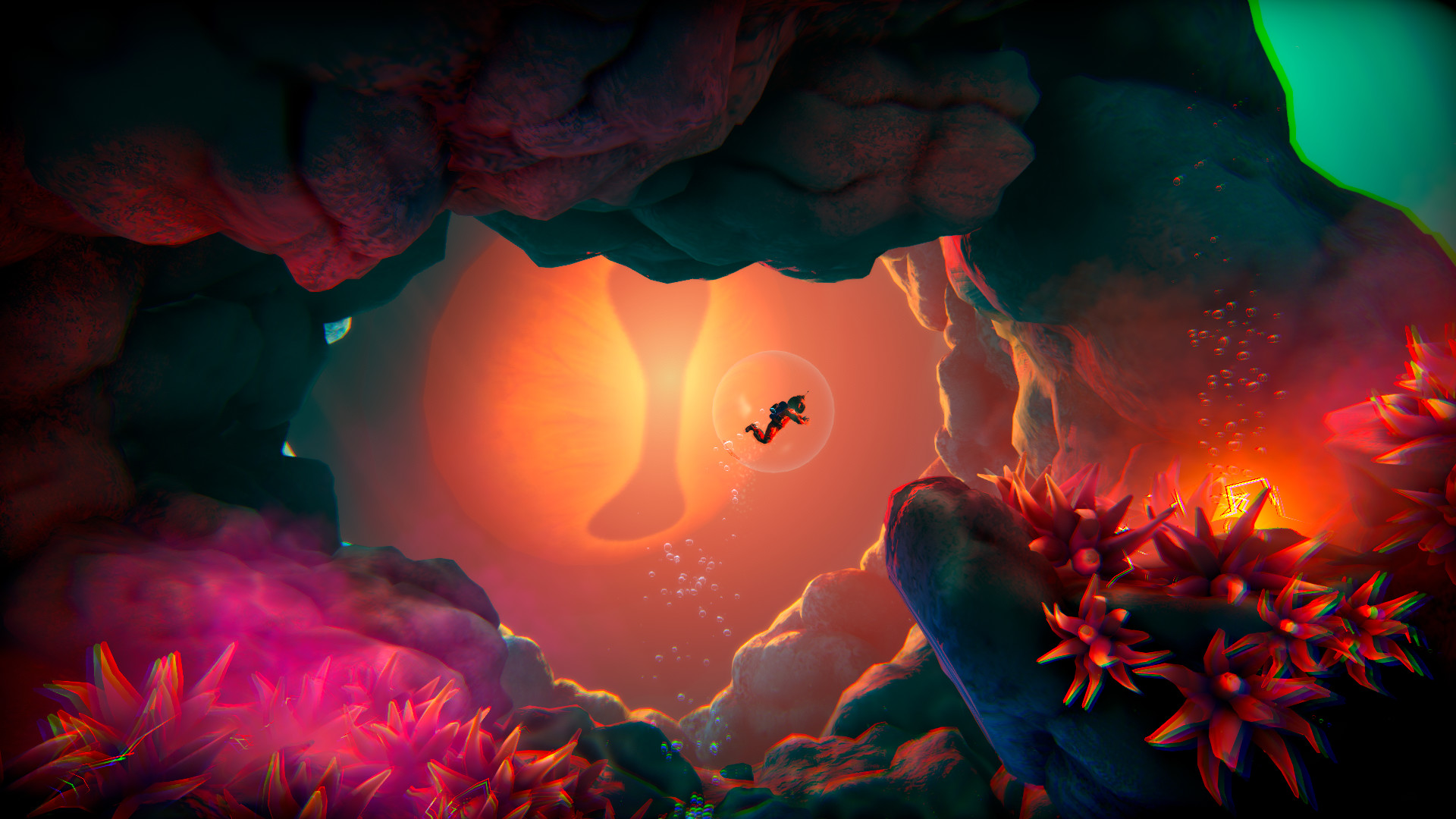
The art in Little Orpheus does impress, but there are some instances where the artists cut some corners. There are some larger creatures in the backgrounds that are massive and “baby” versions are very obviously resized adult models. This is especially evident with the baby walruses which some now have full grown tusks.
The boring gameplay could have been carried by the awesome art and amusing character banter. Where Little Orpheus fumbles the hardest is its controls. As mentioned earlier, the inputs are as simple as possible. The problem is that Ivan’s controls feel unbearably delayed and laggy.
This is not the good kind of delayed action like swinging a greatsword in Monster Hunter Rise; there is almost a second of delay when moving or jumping. Thankfully the gameplay is so basic and dull, clearing jumps or sliding under an obstacle does not take much thought and the few quick-time events that are here are so absurdly generous that it is questionable why they were included.
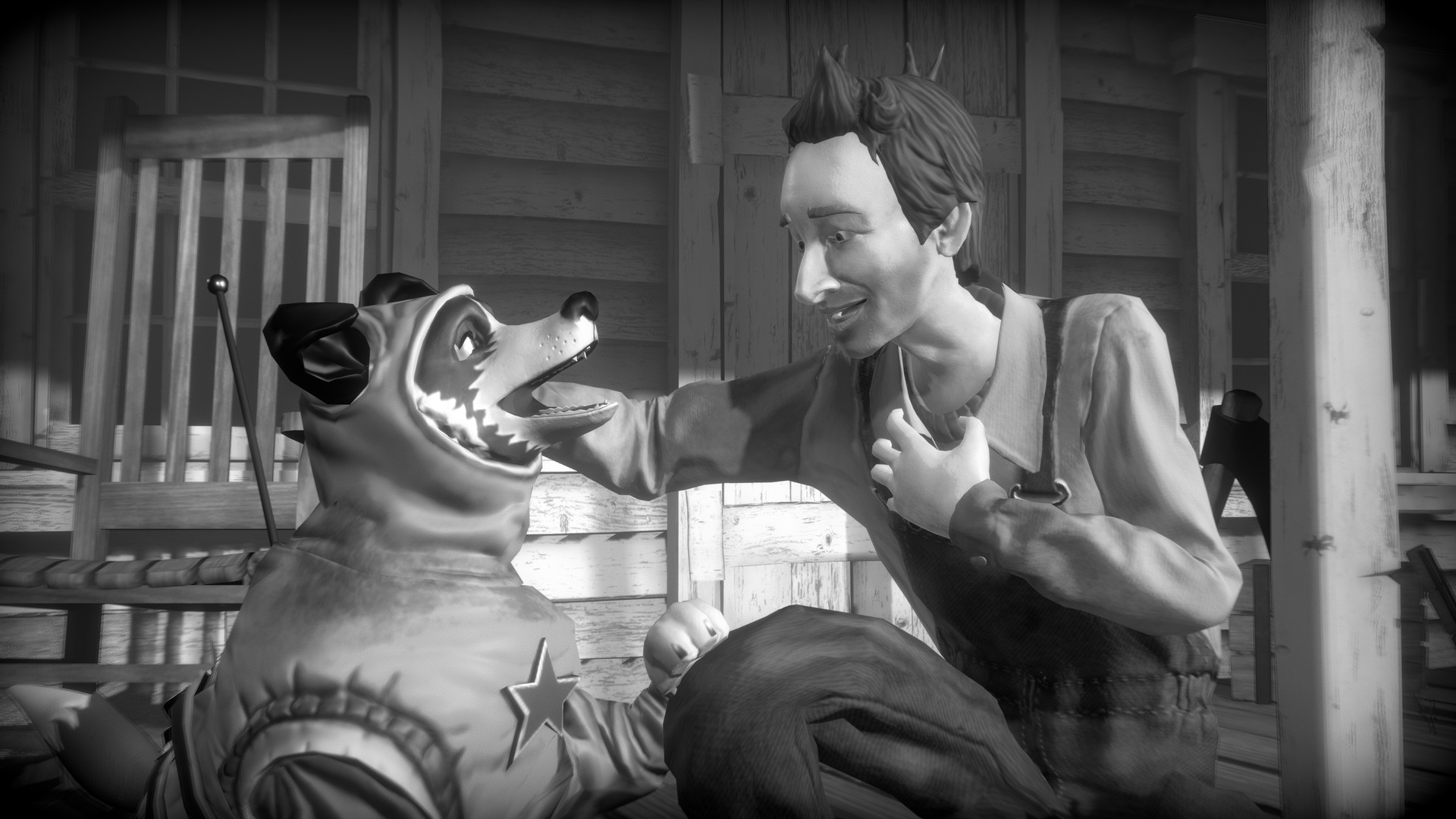
On other consoles or PC, maybe the rough controls may not be an issue. On Nintendo Switch, Little Orpheus rarely feels responsive enough to be enjoyable. Until the control issues are addressed, Ivan should be sent to the gulag.
Little Orpheus‘ has a solid enough foundation. It is too bad that there was not enough creativity put into the puzzles or platforming. The imagery is so good that it could have made up for the lack of imagination, but the rough controls and spotty inputs are what prevent it from achieving greatness.
Little Orpheus was reviewed on Nintendo Switch using a copy provided by Secret Mode. You can find additional information about Niche Gamer’s review/ethics policy here. Little Orpheus is now available for Windows PC (via Steam), PlayStation 4, iOS (via Apple Arcade), PlayStation 5, Nintendo Switch, Xbox One and Xbox Series X|S.